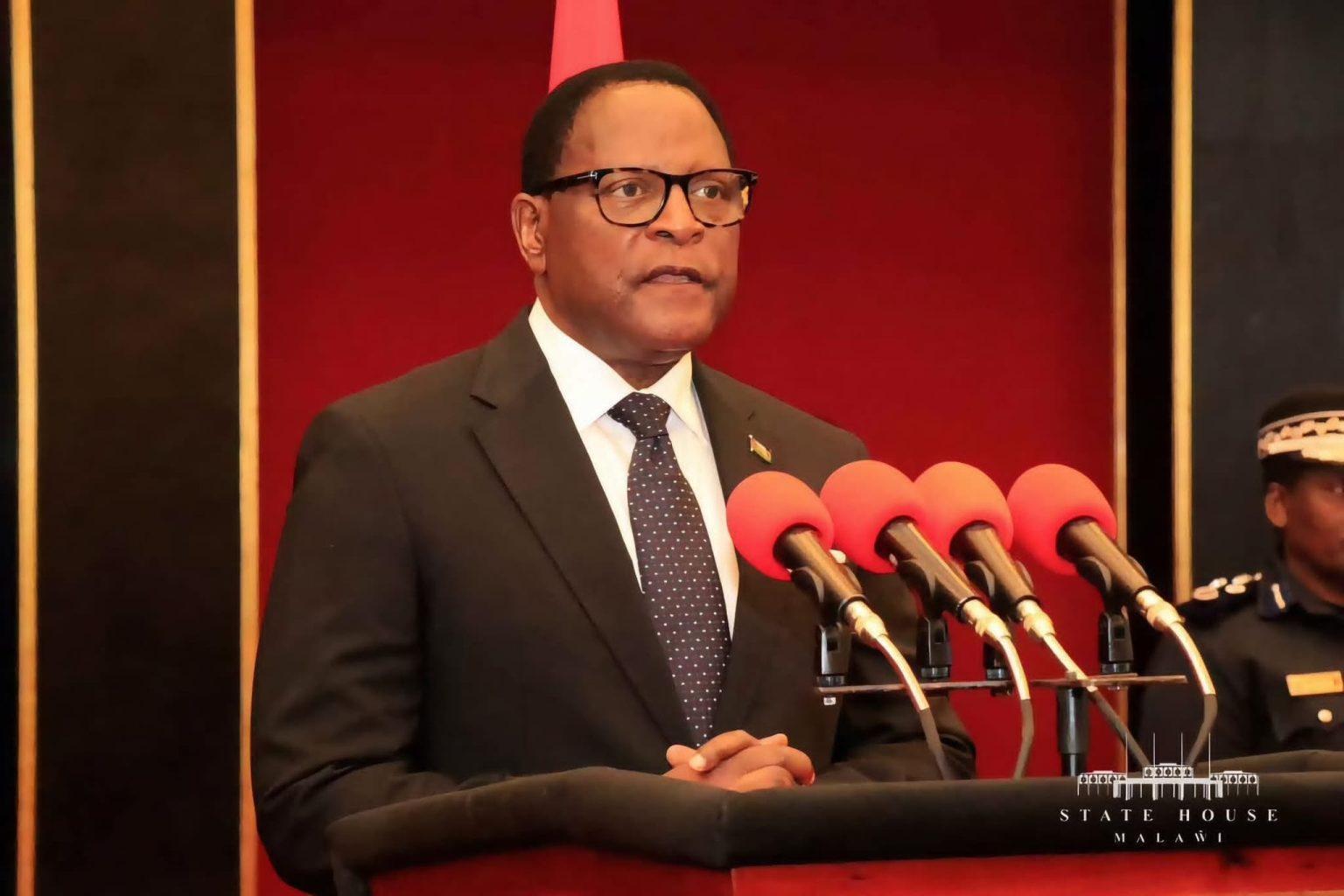Africa-Press – Malawi. In July 2022, President Lazarus Chakwera declared war—not against a foreign invader, but against Malawi’s most entrenched enemy: corruption. “Corruption is our biggest enemy and is not welcome here,” he thundered, launching a 20-week campaign that promised to purge the government of rot, from the highest office to the lowest desk.
Yet, by 2024, Malawians were asking: was this really a war—or just another political charade?
Despite Chakwera’s lofty rhetoric, corruption has remained front-page news. High-profile arrests collapse in court. Billions vanish into thin air. Whistleblowers are hunted, silenced, and driven into hiding.
A Pastor’s Promise vs. Political Reality
When Chakwera took power in 2020, he cast himself as a moral reformer—an evangelical pastor-turned-president determined to clear Malawi’s “rubble of corruption.” But beneath his soaring speeches—often echoing Martin Luther King Jr.—lies a more sobering truth: selective justice, political shielding, and institutional failure.
One of the most brazen scandals under his watch involved Barkaat Foods, a UK meat supplier with no track record in agriculture, which was awarded a $570 million fertiliser deal. The government paid upfront. No fertiliser ever arrived. Local media uncovered evidence of rigging and illicit fund transfers linked to senior officials. Chakwera said nothing—his silence interpreted as complicity.
Then came the National Oil Company of Malawi (NOCMA) scandal. This time, a staggering $857 million was paid to phantom oil suppliers in the UAE. The fuel never came. The damage to Chakwera’s credibility was severe.
Who Gets Prosecuted, and Who Walks Free?
While the Anti-Corruption Bureau (ACB) has pursued cases against select opposition figures—like former cabinet ministers Cecilia Chazama, Nicholas Dausi, and Newton Kambala—it has failed to touch Chakwera’s inner circle. His son, former Vice President Saulos Chilima, and ex-President Bakili Muluzi remain untouched or have had cases quietly shelved.
The arrest of former police chief George Kainja proved that the ACB acts only when it is politically convenient.
Although Chakwera claims to have strengthened the ACB, its autonomy has steadily eroded. In 2023, ACB director Martha Chizuma admitted that funding cuts were crippling the bureau. Months earlier, in a shocking act of intimidation, armed police raided her home in the dead of night, dragged her from bed, and jailed her—her “crime” being a leaked phone call in which she accused state actors of undermining anti-corruption efforts.
Her investigations stalled. Her credibility was attacked. Her contract expired quietly in May 2024.
Since 1998, the ACB has fought a losing battle—hobbled by weak laws, outdated legislation, and political interference. The Corrupt Practices Act is too blunt a tool to tackle modern financial crimes. The bureau has only secured 158 convictions out of 425 cases—a conviction rate of less than 40%.
“I Am Not in the UK Documents” – But Is That Enough?
At the opening of the 2025/26 budget session, Chakwera doubled down on his record. “My critics were disappointed that my name was absent from UK court documents on corrupt Malawian officials,” he said, referring to a joint UK-Malawi investigation into businessman Zuneth Sattar.
But absence is not innocence.
Sattar is being investigated by the UK’s National Crime Agency over inflated military and police contracts worth millions. Investigative journalist Gregory Gondwe exposed the shady procurement of 32 armoured vehicles tied to Sattar. Days later, military police began hunting him down. He went into hiding.
Meanwhile, journalists face harassment, arrests, and exile. Whistleblowers are abandoned. Justice is reserved for the expendable.
A System of Impunity
In May 2022, prosecutors dropped a 20-year-old corruption case against Bakili Muluzi, accused of looting $11 million. Weeks later, Chakwera pardoned Uladi Mussa, a former minister convicted of corruption and banned from the U.S.—calling it a gesture of “Easter goodwill.”
What message does that send?
Selective justice has become the rule, not the exception. Malawi’s justice system is no longer a pillar of integrity—it is a pawn in the political game.
Global Attention, Little Local Action
Between 2005 and 2019, Malawi lost between $2.26 billion and $7.32 billion to corruption and illicit financial flows, according to Global Financial Integrity. Funds meant for schools, hospitals, and development were siphoned off—deepening poverty and killing hope.
Legal scholars James Phiri and Chifundo Ngwira argue in the Malawi Law Journal that political interference has not only derailed key corruption cases but also shattered judicial credibility. The Director of Public Prosecutions (DPP) can unilaterally discontinue cases before judgment—a power frequently abused to protect allies.
“The DPP’s unchecked discretion fosters impunity and erodes public trust in justice,” warn the scholars.
A Court for the Corrupt?
International calls for accountability are growing. Advocates like Professor Gafar Idowu Ayodeji of Nigeria argue that only a new International Anti-Corruption Court (IACCourt) can tackle grand corruption in Africa. Domestic systems, he argues, are too compromised.
“There is nothing institutional about most anti-corruption campaigns in Africa. They are rhetorical, not real,” Ayodeji told Africa in Fact.
Benedicto Kondowe, chair of Malawi’s National Advocacy Platform, agrees but warns that the IACCourt faces jurisdictional and political hurdles. “Still, it would be a major step toward closing the impunity gap,” he said.
Final Verdict
In Malawi, justice is not blind—it is blinkered. Whistleblowers are punished. Journalists are chased into exile. The powerful walk free.
President Chakwera’s “War on Corruption” may have started with fire and fury, but it now smoulders with hypocrisy. Until the law applies equally to all—no matter how powerful—the war on corruption remains exactly what many feared: a political performance cloaked in moral language, staged for the cameras, and quietly abandoned backstage.
For More News And Analysis About Malawi Follow Africa-Press






